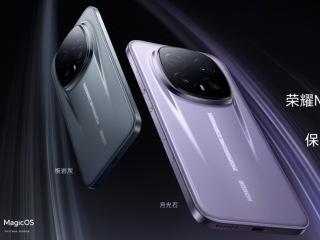- Home
- Mobiles
- Mobiles Features
- Apple iPhone 8 Specifications, Release Date, and More Leaks and Rumours So Far
Apple iPhone 8 Specifications, Release Date, and More - Leaks and Rumours So Far

The iPhone launch is usually the biggest technology event of the year, but the launch of the iPhone 8 will be even more important, as 2017 marks the tenth anniversary of the original iPhone. With such a momentous occasion at hand, all eyes are on Apple, and all the new features it is expected to bring to the iPhone product line.
iPhone 10 Year Anniversary: Apple CEO Tim Cook Says 'Best Is Yet to Come’
There are already all kinds of iPhone 8 rumours swirling around right now - for example, it's been reported that Apple working on more than 10 prototypes of the next iPhone. Though over nine months remain before the iPhone 8 launch, the excitement about the smartphone is palpable, and leaks have already started pouring in, giving us a fair idea of what to expect from the device. Here’s a look at everything we know about the iPhone 8, Apple’s next flagship smartphone.
iPhone 8 may have an all-glass body
The all-glass body that we last saw Apple use with iPhone 4S is expected to make a comeback, with many iPhone 8 leaks suggesting that the next Apple smartphone will use curved glass on the back. This falls in line with KGI Securities analyst Ming-Chi Kuo’s prediction that Apple will not use aluminium or plastic in iPhone 8. The glass body will reportedly be held together by a stainless steel frame on the sides.
iPhone 8 may come in three (or more) screen sizes
While fans have become used to a choice of two flagship iPhone variants (4.7- and 5.5-inch displays) over the past three generations of iPhones, the iPhone 8 rumours say it may come in three screen sizes, or even more. According to analysts citing supply chain sources, Apple may launch iPhone 8 variants with 5-inch, and 5.8-inch, screens.
Barclays analysts say that the company will release the iPhone 8 with 5-inch and 5.8-inch displays, while maintaining the same overall size as the iPhone 7 and iPhone 7 Plus. This effectively means a bigger, bezel-less screen in the same dimensions as that of the predecessors. A Japanese blog recently reported that Apple will make the decision on whether to include a 5-inch iPhone 8 model in its portfolio by March 2017.
On the other hand, Ming-Chi Kuo – who has a great track record of Apple predictions – says that the company will release a 4.7-inch iPhone 8 with LCD panel and a 5.8-inch iPhone 8 with AMOLED display, which consumes less power and delivers better contrast. However, if the AMOLED supplies are insufficient, Apple may launch the iPhone 7s and iPhone 7s Plus with 4.7-inch and 5.5-inch LCD panels respectively, and a premium iPhone 8 model with 5.8-inch AMOLED screen.
A report by Japan’s Nikkei newspaper also talks about a premium iPhone 8 with a 5.5-inch or larger display. This report also says that the premium iPhone 8’s display will be curved on the sides, as we have seen earlier on Samsung Galaxy S6 Edge and Galaxy S7 Edge; the other two variants will have flat display panels, it adds. A new report by DigiTimes says that Samsung Display will be manufacturing the 5.8-inch AMOLED screen for iPhone 8.
Apple has reportedly partnered with arch rival Samsung in a $4.3 billion-deal (roughly Rs. 28,800 crores) to supply the OLED displays for iPhone 8. Samsung is said to be readying as many as 160 million OLED units for the iPhone 8, which is 80 percent of the 200 million iPhones sold in 2016. If the figures continue to hold true, then OLED panels may make their way to iPhone 7s, iPhone 7s Plus and iPhone 8, and not just the premium model. At least some of the remaining iPhone 8 OLED units may be supplied by China's BOE Technology Group, which is spending CNY 100 billion (roughly $14.5 billion or Rs. 97,000 crores) in setting up two AMOLED plants.
iPhone 8 will not have a Home button
This is the most frequently leaked of all rumoured iPhone 8 features: that the iPhone 8 will not have the Home button. Instead, the Touch ID fingerprint sensor and the selfie camera of the iPhone 8 will be integrated in the touchscreen itself. iPhone 8 may even have some new 3D Touch functionalities that enable it to replace some of the functions of the Home button. The iPhone 8 wraparound OLED screen will reportedly be incompatible with the current 3D Touch. In order to fix this, Apple will move to a 'film sensor' which will offer 'higher sensitivity and a wider range of 3D Touch pressure levels'.
(Also see: Imagining the iPhone 8 With No Home Button)
iPhone 8 may debut a new haptic feedback system
Apple will reportedly use a small, high-performance motor in the iPhone 8 to deliver better haptic feedback. So iPhone 8 buyers may get different vibration feedback for each function, such as switching between apps, going back to the homescreen, and unlocking the device.
iPhone 8 will probably have wireless charging
Another common iPhone 8 leaked is wireless charging. While wireless charging has been used by many smartphones, Apple’s take on the feature will be different. Apparently, iPhone 8 will feature long-range wireless charging that will not require the user to place the device on a charging station or even very close to it. South Korea’s Economic Daily News says Apple will use a wireless charging back cover for iPhone 8, so the feature may not be built-in.
(Also see: Meet the Wireless Charging Pioneers)
iPhone 8 may have an iris scanner
The ill-fated Samsung Galaxy Note 7 had an iris scanner, and the feature may make its way to the next Apple flagship smartphone as well, according to iPhone 8 leaks. Ming-Chi Kuo says Apple is working on introducing advance biometric features in the smartphone, so an iris scanner on the iPhone 8 may indeed become a reality. However, some reports say that the iris scanner feature will be ready for 2018, and not next year.
iPhone 8 camera may offer 3D photography
The Korea Economic Daily says that Apple is studying ways to use LG Innotek’s 3D camera module in the iPhone 8. LG Innotek’s 3D camera module will be used in the iPhone 8’s dual rear camera system, alongside the 3D technology Apple acquired with the buyout of LinX in 2015, to deliver photos with 3D effects.
Apart from this, iPhone 8 may feature Optical Image Stabilisation (OIS) in the telephoto lens as well as the wide-angle lens. The iPhone 7 only has OIS in the wide-angle lens. The dual rear cameras of iPhone 8, at least in the rumoured 5-inch model, will be aligned vertically rather than horizontally, says a report.
iPhone 8 may be dust-, water-resistant
The iPhone 8 will reportedly sport an IP68 rating, which means that the device can be immersed for up to 30 minutes in up to 1.5 metres of water. The iPhone 7 and iPhone 7 Plus have an IP67 rating and can survive in up to 1 metre of water for up to 30 minutes. The IP68 rating is a significant improvement over the current rating, but it still doesn't mean that you will be able to take the smartphone swimming.
It's likely to be named iPhone 8
While past naming conventions dictate that the 2017 iPhone models would be called iPhone 7s, and iPhone 7s Plus, most rumours say may not be the case. The tenth anniversary of the iPhone launch in 2007, will make next year's release a pretty big occasion for Apple. You can expect the name of the smartphone to be iPhone 8, though it is not beyond Apple to just call it something like the ‘New iPhone’. However, a recent report by Fast Company suggests that the next iPhone may be named iPhone X.
iPhone 8 will probably be launched in September 2017
Apple has launched the next iteration of the iPhone in September for several years now, so it's probably safe to say you can expect to see the official unveiling of iPhone 8 in September 2017. The first phase of iPhone 8 should begin 10 days or two weeks later, most likely on a Friday.
iPhone 8 price
The iPhone 8's price will reportedly be close to $1,000 due to the expensive OLED panels, which are twice as expensive as LCD screens currently used in iPhones. The top-end iPhone 7s Plus 128GB model costs $969 (Rs. 92,000 in India), so a price tag north of $1,000 is not unimaginable. This price tag has also been tipped by Ming Chi Kuo.
Catch the latest from the Consumer Electronics Show on Gadgets 360, at our CES 2026 hub.
Related Stories
- Samsung Galaxy Unpacked 2025
- ChatGPT
- Redmi Note 14 Pro+
- iPhone 16
- Apple Vision Pro
- Oneplus 12
- OnePlus Nord CE 3 Lite 5G
- iPhone 13
- Xiaomi 14 Pro
- Oppo Find N3
- Tecno Spark Go (2023)
- Realme V30
- Best Phones Under 25000
- Samsung Galaxy S24 Series
- Cryptocurrency
- iQoo 12
- Samsung Galaxy S24 Ultra
- Giottus
- Samsung Galaxy Z Flip 5
- Apple 'Scary Fast'
- Housefull 5
- GoPro Hero 12 Black Review
- Invincible Season 2
- JioGlass
- HD Ready TV
- Laptop Under 50000
- Smartwatch Under 10000
- Latest Mobile Phones
- Compare Phones
- Vivo Y500i
- OnePlus Turbo 6V
- OnePlus Turbo 6
- Itel Zeno 20 Max
- OPPO Reno 15 Pro Mini 5G
- Poco M8 Pro 5G
- Motorola Signature
- Vivo Y50e 5G
- Lenovo Yoga Slim 7x (2025)
- Lenovo Yoga Slim 7a
- Realme Pad 3
- OPPO Pad Air 5
- Xiaomi Watch 5
- Huawei Watch 10th Anniversary Edition
- Acerpure Nitro Z Series 100-inch QLED TV
- Samsung 43 Inch LED Ultra HD (4K) Smart TV (UA43UE81AFULXL)
- Asus ROG Ally
- Nintendo Switch Lite
- Haier 1.6 Ton 5 Star Inverter Split AC (HSU19G-MZAID5BN-INV)
- Haier 1.6 Ton 5 Star Inverter Split AC (HSU19G-MZAIM5BN-INV)

















